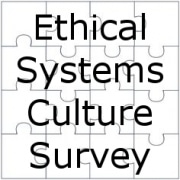Featured Collaborator for March: Dorothee Baumann-Pauly
Interview with Dorothee Baumann-Pauly, Research Director at the NYU Stern Center for Business and Human Rights
 What are your main areas of research?
What are your main areas of research?
My work at the NYU Center for Business and Human Rights focuses on just that– the role of business in human rights. I am currently most interested in new forms of global governance mechanisms for human rights, such as multi-stakeholder initiatives, the organizational challenges of implementing the corporate commitment to human rights, and questions about the legitimacy of emerging private governance schemes for human rights.
How does your work on human rights help companies that want to improve themselves as ethical systems?
In contrast to the more established, yet still vague framework, of corporate social responsibility (CSR), business and human rights (BHR) explicitly focuses on aligning companies’ core business processes with their commitment to human rights. Thus, BHR asks how companies are making their money, not how they are spending it. Human rights challenges are real for multinational companies; they pose major business risks to their operations. Companies today are expected to commit to respecting human rights in their business operations, and they need concrete standards that clarify what this commitment means in their operational context. The requirement to report against a specific standard increases transparency over a corporation’s human rights conduct and creates incentives to develop enduring ethical systems.
If you could only highlight one paper or research finding (or piece of work that you’ve been involved with) that relates to Ethical Systems, which one would it be and why?
The Center’s work on multi-stakeholder initiatives (MSIs), which is an emerging form of governance that brings together representatives from corporations, civil society, and sometimes governments, shows that these initiatives can provide a practical approach to the implementation of human rights. By defining industry-specific human rights standards, such initiatives can set clear benchmarks for what is expected of corporations that operate in a specific industry context. In our research, we analyzed whether these MSIs also met the typical legitimacy criteria that we would expect from any democratic governance system. We showed that MSIs that operationalize standards into measurable indicators, establish monitoring mechanisms, and make their monitoring results publicly accessible, have indeed created a form of governance that at least in principle can meet legitimacy criteria. These types of MSIs also create a level playing field for participants and they generate comparable data. The latter is relevant for consumers and investors who want to differentiate companies based on their human rights performance.
Tell us about one of your current or future projects (perhaps something on an upcoming book or paper?
I am very excited about the Center’s forthcoming textbook Business and Human Rights – From Principles to Practice (Routledge 2016), which will be the first comprehensive and interdisciplinary textbook focused on these issues. The goal is to start a larger conversation about transforming business education to encompass business and human rights, as well as generate change in curricula development at business schools. The textbook seeks to reach an audience of current and future business leaders, and students and instructors at law and business schools, in order to develop a better understanding of how human rights is critical to business. We have a long way to go for business and human rights to become a requisite part of business school curricula.
How did you first get interested in your field?
While studying international relations in the U.S. and Europe, I realized that in the globalized world, private actors, such as multi-national companies, rather than nation-states, have an increasingly important role to play in the implementation of human rights – yet traditionally, international relations have treated them like a side-show! Exploring the theoretical and practical implications of the changing role of business in society must be viewed through an interdisciplinary lens.
If you could only give one piece of advice to companies, what would it be?
Invest in supply chain transparency. Unless companies are able to fully map their supply chains, they cannot manage these challenges. Human rights risks in supply chains, even in industries like the garment sector that has invested in social audits for decades, are still poorly understood. Our latest in-depth analysis of the garment supply chain in Bangladesh, “Beyond the Tip of the Iceberg: Bangladesh’s Forgotten Apparel Workers,” highlights these issues and provides recommendations for how to address them. We point out that corporations cannot address systemic human rights challenges on their own and instead need to develop models of shared responsibility, as we recently suggested in an op-ed in the Wall Street Journal on improving Asia’s labor conditions.
If you could only give one piece of advice to individuals, what would it be?
Choose your employer carefully. Good people easily make bad decisions in toxic work environments.
Featured Academic Article
“Industry-Specific Multi-Stakeholder Initiatives That Govern Corporate Human Rights Standards – Legitimacy assessments of the Fair Labor Association and the Global Network Initiative” (Just accepted for publication in the Journal of Business Ethics)
Featured Popular Article
Are Bangladesh Factories Any Safer Now? Gillian B. White, The Atlantic, Dec. 17, 2015.








